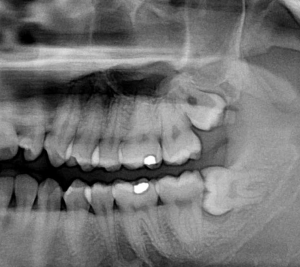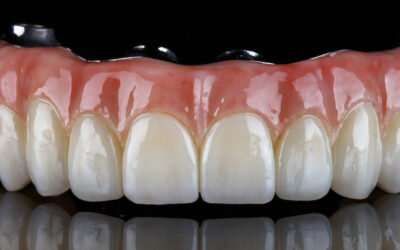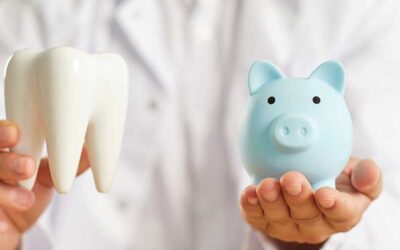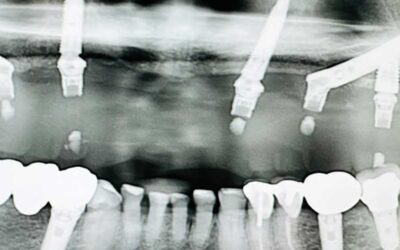When It’s Time to Let Go of a Tooth
Infected teeth and gums are not only a problem themselves, but they can create a cascade of health issues. The bacterial infection can spread to other teeth, and even to the rest of the body.
How do you know if your toothache will subside or if it will development into a serious problem that needs the attention of an oral surgeon? The following telltale signs indicate it’s time to consult with a periodontist in Los Angeles to be evaluated for a tooth extraction:
Swollen or Painful Gums
If your gums are tender to the touch and look inflamed and red rather than pale and firm, they may be infected. It could be a case of mild gingivitis that will resolve when regular brushing and flossing is integrated into your daily routine, but if inflammation persists despite good oral health habits, a consultation with a periodontal specialist may be in order. If your gums are infected, there is a chance that the infection could spread to the teeth and beyond.
Chronic gingivitis has been associated with conditions such as:
- Heart attack
- Stroke
- Lung disease
- Premature or low-birth-weight babies
If no teeth are involved in the gum infection, treatment may include stem cell therapy with platelet-rich fibrin (PRF) to grow new tissue and restore gums to a healthy state. However, depending on the extent of the decay, tooth extraction may still be recommended by your periodontist.
Infected Tooth
Persistent bad breath may be a sign of an infected tooth, particularly if the odor is accompanied by tooth pain. In some instances, the infected tooth can be cleaned out and sealed with a filling or topped with a crown. If the tooth has degraded too much, however, it will need to be removed.
Consulting with a Los Angeles periodontal surgeon can determine the source of your halitosis and determine if a tooth extraction is in order.
Painful Teeth
The most obvious sign that a tooth extraction may be necessary is the presence of pain that does not resolve after a few days. Tooth pain is generally a sign of trauma or infection. Either of these could be sufficient cause for a tooth extraction.
Broken Tooth
If you have a broken tooth that cannot be treated with a crown, a tooth extraction is preferable to leaving the damaged tooth in the mouth where it can become a harbor for bacteria and may cause damage to the soft tissues in the mouth.
You should have the tooth evaluated as soon as possible after the damage occurs to minimize the risk of infection.
Wisdom Teeth
 Your mouth may become crowded if your third molars, popularly known as “wisdom teeth,” emerge. If the presence of the wisdom teeth causes pain, discomfort, or complicates your ability to clean the other teeth, they should be removed.
Your mouth may become crowded if your third molars, popularly known as “wisdom teeth,” emerge. If the presence of the wisdom teeth causes pain, discomfort, or complicates your ability to clean the other teeth, they should be removed.
If your third molars cannot break through your gums on their own, they will have to be manually extracted. Leaving them in place puts you at risk of infection, chronic pain, and systemic disease. Impacted wisdom teeth should be removed by a periodontal surgeon – preferably before the patient is 25 years old.
What to Expect After a Tooth Removal Surgery
If you require a dental extraction, Dr. Aalam and Dr. Krivitsky will work closely with you to make the experience as pain-free and safe as possible.
After a successful tooth extraction, a blood clot will form in the space where the tooth has been removed. This clot helps to protect the underlying bone and nerves from air, trauma, and bacteria. If a clot does not form, or if it falls off or is dislodged in some way, the exposed bone and nerves can become infected and painful. If this happens, a dry socket can develop.
Only about 5% of patients who undergo extraction will experience dry socket. Risk factors include smoking, poor oral hygiene, use of birth control pills, trauma during extraction, and a history of alveolar osteitis. Wisdom tooth extraction runs a higher than normal risk for dry socket, due to the fact that it can be a complex surgery. Dry socket symptoms include bad breath, an unpleasant taste, discomfort, infection and severe pain that can last up to six days. You may also be able to see the bone in the open wound.
At the CENTER for Advanced Periodontal Implant Therapy in Los Angeles, we are one of the only centers in the nation to offer advanced platelet rich fibrin (PRF) to treat dry socket. In this procedure, we use a bit of your own extracted blood to create an artificial tissue that bonds with the gum, promoting fast healing.
Learn more about tooth extractions at WebMD.com.
Contact Los Angeles Periodontists Today!
If you suspect you may require a tooth extraction or have any oral symptoms that persist for days, please consult with a board-certified periodontal surgeon. At the CENTER for Advanced Periodontal Implant Therapy in Los Angeles, we offer state-of-the-art treatments and a free consultation. Please contact us at 310-826-8242 today to learn more.
You May Also Like...
Considering Dental Implants in Santa Monica? What You Should Know Before Getting Started
Thinking about getting dental implants in Santa Monica? Get expert insight, trusted care tips, and everything you need...
How Much Do Dental Implants Cost in Southern California? A Complete Guide
If you're considering dental implants in Southern California, you’re likely wondering: How much will they cost? Are...
Can Zygomatic and Pterygoid Implants Be Done in a Day? Breaking Down the Process
Losing bone in the upper jaw can feel overwhelming, especially if you've been told traditional implants aren’t an...



